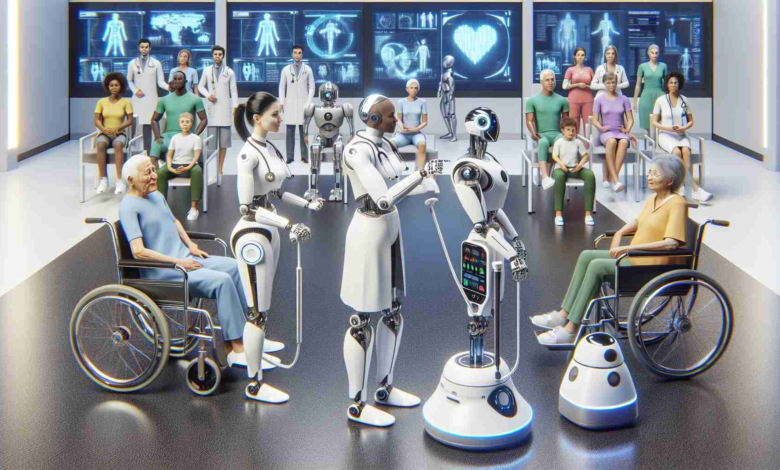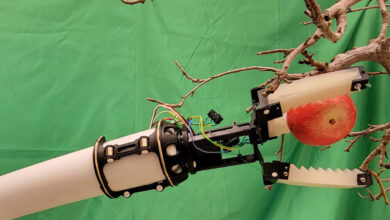Personalized Robots Win People’s Preference in Healthcare, Study Shows

A recent study conducted by the University of Waterloo’s Social and Intelligent Robotics Research Lab has uncovered a fascinating perspective on how people interact with social robots. The research, led by professors Moojan Ghafurian and Kersten Dautenhahn, suggests that individuals have a predilection for robots that reflect their own characteristics.
Participants in the study were asked to evaluate images of various robots and rate them based on traits such as kindness, activity levels, and strength. Subsequently, they also assessed themselves on these traits and discussed their willingness to collaborate with the robots in a healthcare environment. The key finding was that people showed a greater interest in robots that they judged to be similar to themselves, especially when considering their use in healthcare settings.
This insight has profound implications for the future design and customization of robots. The idea is to create social robots that are capable of adjusting their personality and interactions to cater to individual preferences. As robots are projected to be integrated into sectors beyond healthcare, such as education, the significance of personalization and making strong first impressions becomes even more apparent.
The potential applications of social robots are vast, ranging from assisting children with educational tasks to reminding the elderly about their medication schedules. Robots can also offer vital support to older adults and individuals with dementia. Ensuring that these robots are perceived as friendly and relatable from the onset could greatly enhance the comfort and ease with which humans interact with their robotic counterparts.
Summary: Research from the University of Waterloo reveals people’s preference for social robots that resemble their own personalities, which could be crucial in settings like healthcare. Personalizing robot interactions may pave the way for wider robot integration into daily life, with a special emphasis on helping the elderly and children. The study advocates the importance of positive first impressions for social robot acceptance.
The findings from the University of Waterloo’s study shed light on a critical aspect of human-robot interaction and open avenues for further development in the social robotics industry. By understanding the importance of personal traits in robotics, manufacturers and researchers are poised to create more effective and empathetic robotic assistants that can cater to a broad range of personal preferences and needs.
The Social Robotics Industry
The social robotics industry is rapidly expanding, with incorporation into sectors such as healthcare, education, customer service, and personal assistance. Social robots are designed to interact with people through conversation, facial expressions, and other forms of non-verbal communication, making them ideally suited for roles that require emotional intelligence.
Market Forecasts
According to industry analysis, the market for social robots is expected to see substantial growth over the next few years. Reports suggest that this market could be worth billions of dollars by 2025, with a compound annual growth rate that signifies a growing acceptance and demand for such technology. This growth is underpinned by advancements in artificial intelligence, machine learning, and natural language processing technologies which enable robots to better understand and interact with humans.
Issues Related to the Industry or Product
Despite the potential and growth of social robotics, there are several challenges that the industry faces. These include technical issues such as improving the naturalness of interactions, ethical concerns about privacy and the replacement of human jobs, and the need for standardization and regulations to ensure safety and effectiveness. Moreover, ensuring that robots are accessible to a wide range of users and can handle diverse social contexts is essential for their integration into everyday life.
Furthermore, as the article discusses, personalization is a key theme; this aspect could encounter issues around cultural sensitivity and inclusivity. Designing robots that are adaptable across various cultures and demographics remains a robust area of research and product development.
To stay updated on the latest trends and information in this dynamic field, interested parties may want to visit credible websites related to technology and robotics. Some examples of these are:
– IEEE: A global organization providing a wealth of resources on engineering and technology, including robotics.
– Robotic Industries Association: Offering insights into the business and economic aspects of the robotics industry.
– Wired: A magazine and website with extensive coverage of current trends in technology, including robotics.
In summary, the research from the University of Waterloo reaffirms the concept that personalization will likely be a cornerstone in the acceptance and integration of social robots into various domains. This will not only shape how robots are designed and marketed but will also influence the user experience, ensuring that interactions with robots are more engaging, helpful, and ultimately, successful in meeting the aspirations of the social robotics industry.

Igor Nowacki is a fictional author known for his imaginative insights into futuristic technology and speculative science. His writings often explore the boundaries of reality, blending fact with fantasy to envision groundbreaking inventions. Nowacki’s work is celebrated for its creativity and ability to inspire readers to think beyond the limits of current technology, imagining a world where the impossible becomes possible. His articles are a blend of science fiction and visionary tech predictions.



